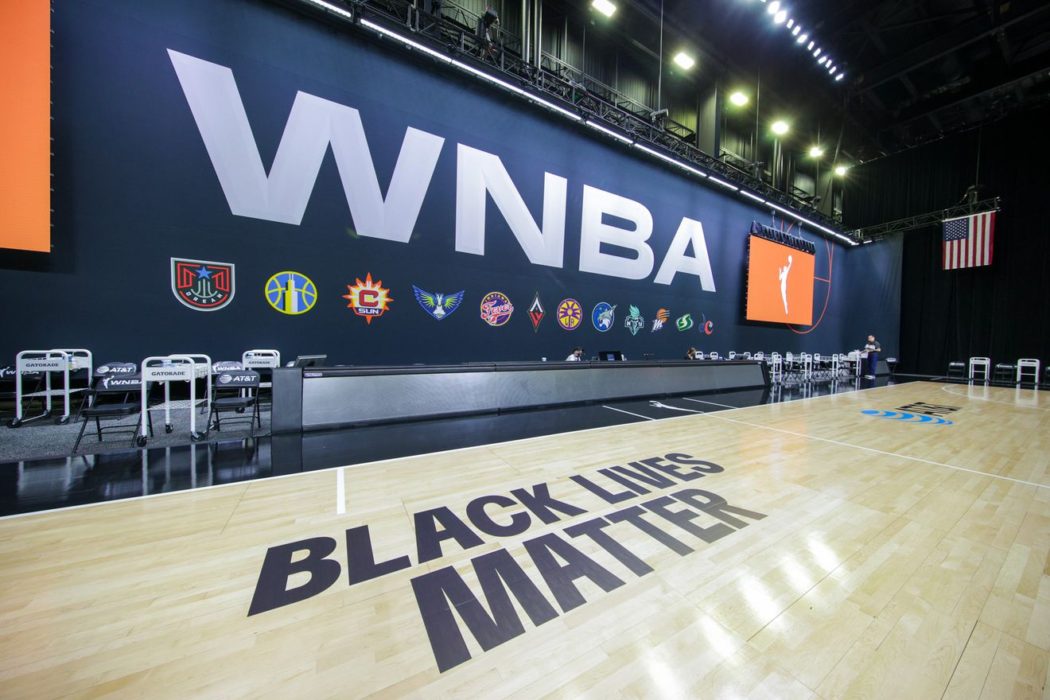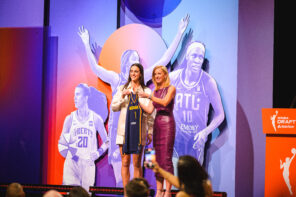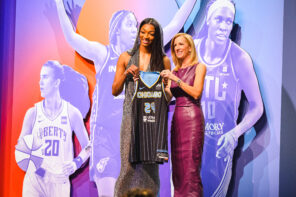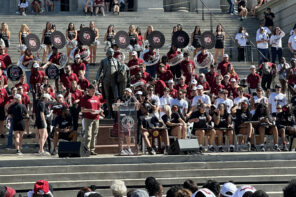We are only 2 ½ weeks shy of the WNBA’s 25th season.
If one has not circled its calendar to make sure your evening of Friday May 14 is clear starting at 7 p.m. when Sabrina Ionescu makes her return for the New York Liberty at Barclays Center to take on the Indiana Fever … what are you doing, sis?
That is right – the W will celebrate its 25th season in 2021 and there are lots more than simply 25 seasons still to come from the premier women’s hoops league on the planet. And at 25 years old, we know what we are getting.
After some early growing pains with how the league (and its players) were marketed along with continued growing pains found in how teams were constantly folding, the WNBA appears to finding stable footing with its current 12 teams. In the WNBA, we get a league of strong, athletic, energetic, charismatic women who are the best at their craft. Only 144 roster spots are available among the 12 teams, meaning only the most elite of elite talents make it on a WNBA roster.
Let us also not ignore that this is a group of mostly Black women, who have proven themselves time and time again to be conscience of, not only our country, but of society as large. Black women, such as those in the W, have constantly proven themselves to be the blueprint for society and these women have absolutely no issue unconditionally embracing their Blackness, whether that is through their music, their style or their backgrounds among other things.
Unlike a Liberty, Sparks, Mystics or Sun jersey, melanin is one uniform that cannot be removed (and who would want to given how beautiful Black is).
The luminaries of the WNBA have also made a name for themselves as change agents for social justice. Natasha Cloud. Layshia Clarendon. Nneka and Chiney Ogwumike. Renee Montgomery. Breanna Stewart. Skylar Diggins-Smith. Liz Cambage. Not to mention those in the front office such as Seattle Storm co-owners Dawn Trudeau, Ginny Gilder and Lisa Brummel, Liberty CEO Keia Clarke, Phoenix Mercury COO Vince Kozar, Minnesota Lynx coach and general manager Cheryl Reeve and Chicago Sky coach and general manager James Wade.
The W believes that Black Lives Matter.
In short, the W is like any typical 25-year old young professional woman. Still energetic, fresh and fly while still trying to find herself and figure things out.
While steps are being made in the right direction to provide more coverage to what the women of the WNBA do on the court as well as off of it, there still remains a coverage deficiency in relation to more “established” (aka male) sports. But for all of the flack that the WNBA gets for supposedly being a “small” sports organization, it has found an identity that more established leagues could only dream of.
Major League Baseball is the perfect example of a sports league that needs to take some notes from the WNBA on how to find its identity. Right now, MLB does not know what it wants to be. It does not know if it wants to alienate its older fanbase by going younger or alienate potential younger viewers of the game by still placating to an older audience that is dying out.
Baseball constantly bills itself as America’s National Pastime. The issue with that is there are lots of people under 40 who you could not pay money to watch a three-hour baseball game. And the last time we checked, it is young people who dictate where companies and ad agencies decide to spend their valuable advertising dollars.
MLB wants to desperately hold on to its “traditions” and “unwritten rules” that are simply archaic relics to anyone under the age of 40. If one flips a bat after a home run, that hitter is thrown at on the first pitch of their ensuing at bat. It does not know how to utilize technology the correct way. The sport’s managers are held hostage by analytics. Fernando Tatis, Jr. of the San Diego Padres is unarguably MLB’s most marketable star – yet, where are the commercials flooding our TV screens, cell phones and billboards with his name and likeness in them?
The hypocrisy (and potential racism) in older fans cannot be underscored either. These longtime baseball fans love to wax poetically about why the game is such a business (as all sports are) and why there are not more players that treat it as a “kid’s game.” Flipping a bat is the textbook definition of treating baseball as a kid’s game, but these same fans will complain that such emotion being shown, as if they were kids, is disrespectful to the game and that they should abide by the unwritten rules.
Perhaps only CERTAIN players are allowed, according to some MLB fans to have fun on the field. Hint: it once was tradition for baseball to be a whites-only sport before Jackie Robinson came along and made MLB take a hard look at itself in the mirror.
And let us not even talk about the NFL – a sport that loves to put out cutesy PR statements about how it wants to address racism and listen to its Black players and fans. Yet, Colin Kaepernick for kneeling in protest of police brutality and a major spark plug for this wave of social activism we have seen among athletes in recent years, was all but blacklisted out of the league.
MLB and the NFL are going through their identity crises because both are trying to decide if they should cater to an older, dying audience or do the smart thing and adapt to the changing time where fighting for social justice is the wave (especially among a younger, more connected audience). The WNBA is already ahead of the curve and should feel optimistic about what the results of that will be in the long-term. After all, WNBA players were responsible for two Senate seats from Georgia flipping from red to blue and by proxy the U.S. Senate flipping from red to blue as well.
Maybe MLB and the NFL need to oust Rob Manfred and Roger Goodell, respectively, and tap ex-WNBA league presidents to head those leagues. Is Donna Orender available? Someone get Laurel Richie on line 1. What about Lisa Borders?
Somebody say Amen.




